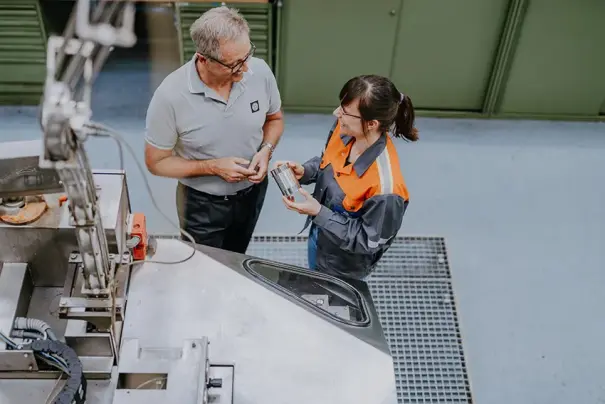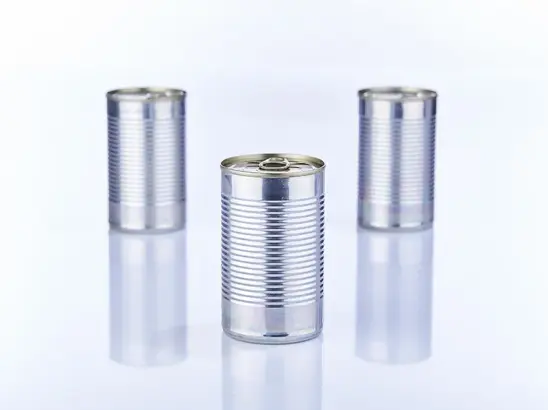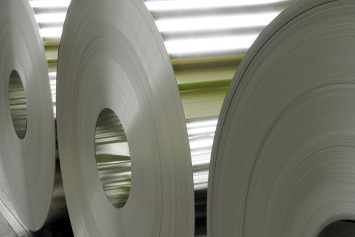
thyssenkrupp Rasselstein therefore had the U.S. market in its sights in particular when it explored the potential of rasselstein® Solidflex technology for the development of other material grades. With success: in the near future, the D&I material will expand the portfolio. It allows manufacturers to further reduce the wall thickness of their cans while maintaining stability.

"Axial stability plays a key role in food cans, ensuring that products can be stacked safely over ten meters high without the lower cans collapsing under the load. In addition, the filled can must withstand the external pressure during sterilization," summarizes project manager Anne Reichardt, a development engineer in application technology. "This is precisely where our newly developed packaging steel grade can show its advantages. It gives our customers the possibility to use this material to produce two-piece cans with higher strength values. Conversely, we can in turn reduce the thickness without sacrificing stability compared to the standard grade."

Up to ten percent tinplate can be saved by using the new grade. This not only reduces the mining, use and transportation of finite resources, but also the environmental footprint of the can. Emissions can be reduced even further if the innovative rasselstein® Solidflex material is used in the lid, because sheet thicknesses can be reduced. "The combination of both grades allows our customers to optimize the entire package," Frank Elberskirch adds.
In the U.S., the new development from Andernach has already completed its first round of presentations. "We are currently in talks with companies that are interested in getting to know and testing the new material," says Jochen Lohscheidt, Head of Sales USA.



